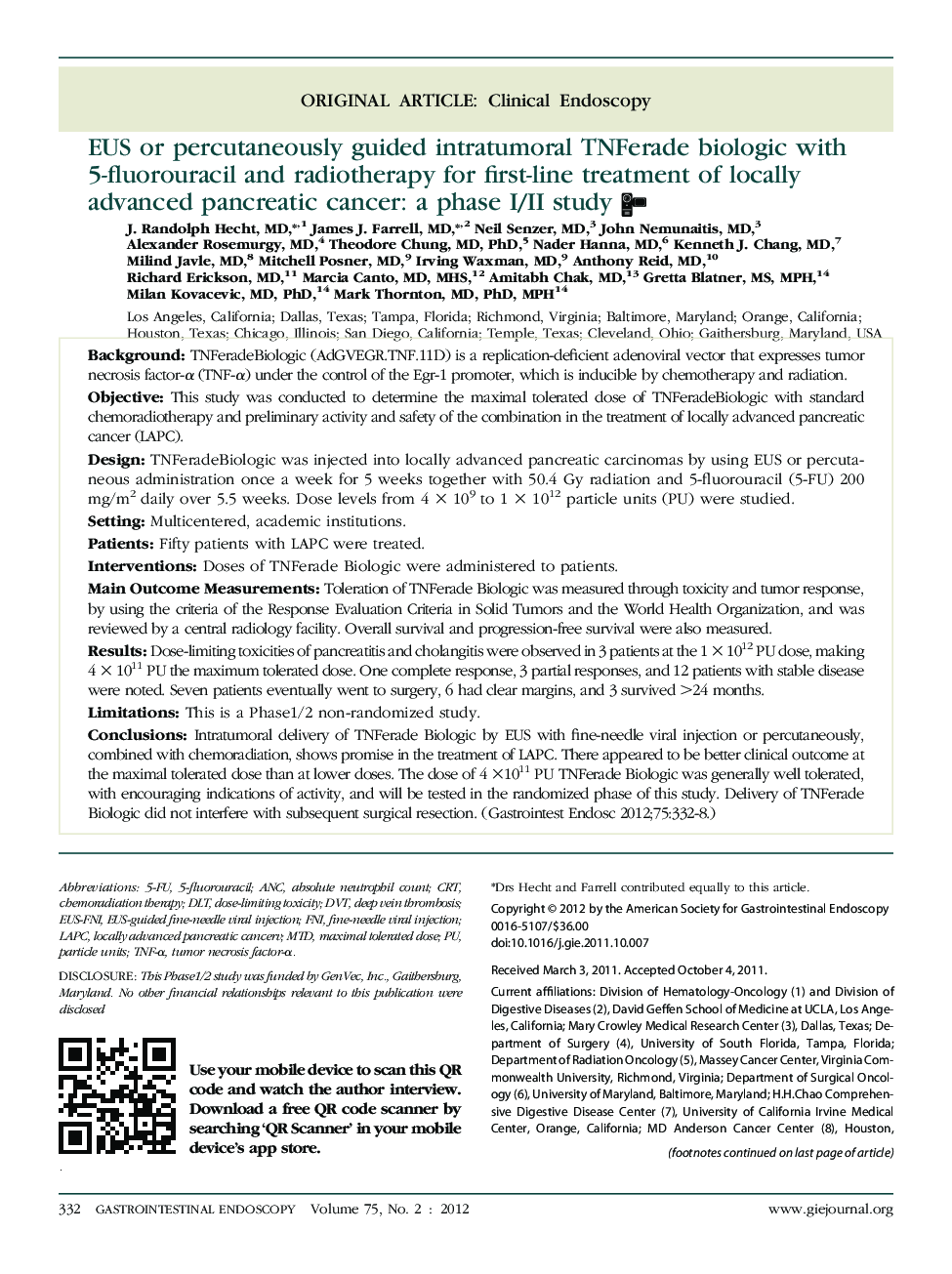| Article ID | Journal | Published Year | Pages | File Type |
|---|---|---|---|---|
| 3304611 | Gastrointestinal Endoscopy | 2012 | 7 Pages |
BackgroundTNFeradeBiologic (AdGVEGR.TNF.11D) is a replication-deficient adenoviral vector that expresses tumor necrosis factor-α (TNF-α) under the control of the Egr-1 promoter, which is inducible by chemotherapy and radiation.ObjectiveThis study was conducted to determine the maximal tolerated dose of TNFeradeBiologic with standard chemoradiotherapy and preliminary activity and safety of the combination in the treatment of locally advanced pancreatic cancer (LAPC).DesignTNFeradeBiologic was injected into locally advanced pancreatic carcinomas by using EUS or percutaneous administration once a week for 5 weeks together with 50.4 Gy radiation and 5-fluorouracil (5-FU) 200 mg/m2 daily over 5.5 weeks. Dose levels from 4 × 109 to 1 × 1012 particle units (PU) were studied.SettingMulticentered, academic institutions.PatientsFifty patients with LAPC were treated.InterventionsDoses of TNFerade Biologic were administered to patients.Main Outcome MeasurementsToleration of TNFerade Biologic was measured through toxicity and tumor response, by using the criteria of the Response Evaluation Criteria in Solid Tumors and the World Health Organization, and was reviewed by a central radiology facility. Overall survival and progression-free survival were also measured.ResultsDose-limiting toxicities of pancreatitis and cholangitis were observed in 3 patients at the 1 × 1012 PU dose, making 4 × 1011 PU the maximum tolerated dose. One complete response, 3 partial responses, and 12 patients with stable disease were noted. Seven patients eventually went to surgery, 6 had clear margins, and 3 survived >24 months.LimitationsThis is a Phase1/2 non-randomized study.ConclusionsIntratumoral delivery of TNFerade Biologic by EUS with fine-needle viral injection or percutaneously, combined with chemoradiation, shows promise in the treatment of LAPC. There appeared to be better clinical outcome at the maximal tolerated dose than at lower doses. The dose of 4 ×1011 PU TNFerade Biologic was generally well tolerated, with encouraging indications of activity, and will be tested in the randomized phase of this study. Delivery of TNFerade Biologic did not interfere with subsequent surgical resection.
